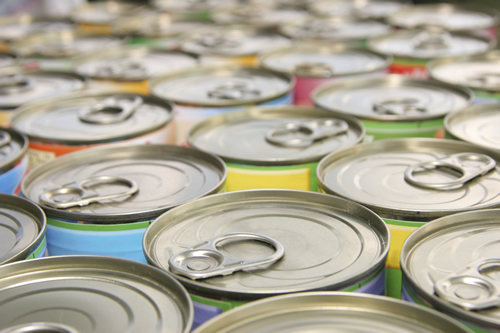Acidified Foods and Low-Acid Canned Foods
 Anytime food is placed in a sealed container provisions must be taken to prevent the growth of the organism that produces the toxin that causes botulism. There are two common ways to accomplish this. The first is to apply sufficient heat to kill the spores this organism can produce, which is often referred to as low-acid food canning. The second is assuring that the pH of the product is below 4.6, which means that enough acid is present to keep the spores from growing and producing the toxin. This is often referred to acidified food canning. These operations have specific requirements that are in addition to the current good manufacturing practices (cGMP).
Anytime food is placed in a sealed container provisions must be taken to prevent the growth of the organism that produces the toxin that causes botulism. There are two common ways to accomplish this. The first is to apply sufficient heat to kill the spores this organism can produce, which is often referred to as low-acid food canning. The second is assuring that the pH of the product is below 4.6, which means that enough acid is present to keep the spores from growing and producing the toxin. This is often referred to acidified food canning. These operations have specific requirements that are in addition to the current good manufacturing practices (cGMP).
Two terms you should be aware of in these types of operations are process authority and better process control school (BPCS). A process authority according to 9 CFR 318.300 is “a person(s) or organization(s) having expert knowledge of thermal processing requirements for foods in hermetically sealed containers, having access to facilities for making such determinations, and designated by the establishment to perform certain functions as indicated by the regulation.” A better process control school is an approved program that certifies individuals to act as supervisors for food processing procedures that require specific knowledge of low-acid thermal processing, acidification or container closure evaluation to ensure that the processes are performed correctly. This helps to prevent unsafe food being made available to the public.
A low-acid canned food operation uses thermal processing to ensure safety in products with a final pH above 4.6. A common food in this category would be canned green beans. If you want to start canning low-acid foods for commercial use you would need to follow the requirements in the Code of Federal Regulation chapter titled “Thermally Processed Low-Acid Foods, Packaged in Hermetically Sealed Containers” (CFR 113) in addition to the current good manufacturing practices (cGMPs). The thermal processing regulations include requirements for having the recipe and canning process reviewed by a process authority, attending a BPCS, obtaining a federal canning identification number, retort and processing requirements and development of a record keeping plan. These extra steps are necessary to ensure that the operator is following a procedure that will eliminate or reduce the possibility of problems such as botulism.
Missouri has adopted a section of the Code of State Regulations (CSR) to address acidified foods. Acidified foods are low-acid foods where the finished product pH has been adjusted to bring it below 4.6. Some of the foods that fall into this category are salsas and other foods to which an acid (commonly lemon juice or vinegar) has been added. Sometimes these are called “pickled” foods. A person who is canning an acidified food will need to follow the requirements for acidified foods in addition to cGMPs. Missouri acidified food regulations are based on CFR 114 which includes the requirements to have the process reviewed by a process authority and for personnel to attend a BPCS. This ensures that the manufacturer is applying controls to protect foods from hazards such as botulism.
Fermented foods such as some pickles, kombucha tea, and kimchi may or may not have a pH below 4.6. These foods would need to be evaluated by the Manufactured Food Program to determine the requirements for producing them. Contact the Missouri Department of Health and Senior Services, at the District office in your area to discuss the requirements if you are considering starting a low-acid food, acidified food or fermented food-manufacturing operation. To see additional information for manufactured food regulations for more advanced processes use the links on the main Manufactured Food Program web page.
Additional Resources:
